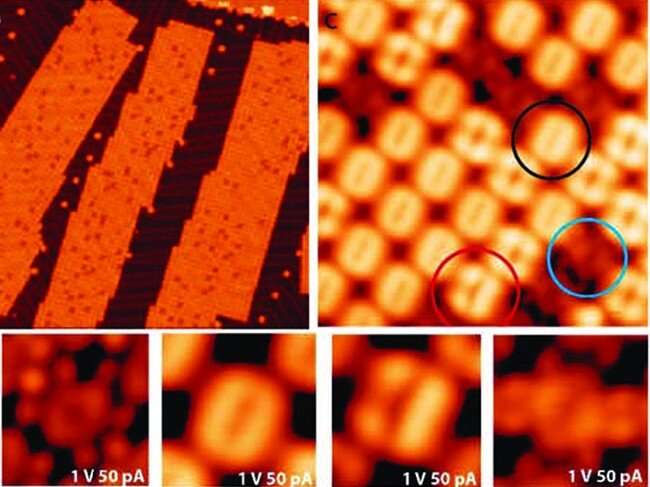The design of molecular systems on surfaces is crucial
for the fundamental understanding of electronic transport. The
development of molecular electronics, spintronic devices and
quantum computation will only happen along with the precise control
over the spin texture and its interaction with the surroundings.
The Kondo effect is a phenomenon that has attracted much attention
because of its potential in single-molecule spintronic
applications. The Kondo effect results from the interaction between
spin of magnetic impurities and the conduction electrons, resulting
in a change of electrical conductivity below certain temperatures.
This phenomenon has been extensively investigated on surfaces,
particularly in metal macrocycles; however, the magnetism of
lanthanide coordination complexes are largely
unexplored.



